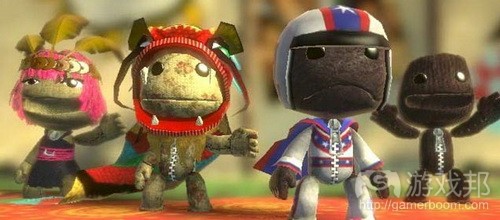解析趣味性之外的游戏6大不容忽视优点
游戏邦注:本文作者为Jon Radoff,原文发布于2009年12月8日,文章叙述以当时为背景。
游戏是个有趣媒介。和音乐、文学、电影和戏剧一样,游戏让我们的生活更富价值。在《道林·格雷的画像》中,奥斯卡·王尔德称,“所有的艺术都毫无用处。”他的意思是说艺术其实没有什么实际价值。但这并不表示艺术对任何人而言都毫无益处。我认为游戏亦是如此,娱乐价值足以证明其存在必要性。
游戏批评者更多认为,游戏将暴力、成瘾性和干扰视作“更富意义”的追求。我们常在电影或酒吧正面冲突中碰到此类情况……
姑且不论其讽刺方面,或许你读到此类内容是因为你自己对这个新型娱乐方式也颇感困惑;或者也许你是热爱游戏之人,愿意向父母、老师、好友或《每日邮报》读者、福克斯新闻观众解释其中益处(游戏邦注:除娱乐性之外)。本文主要阐述游戏价值所在。
1. 游戏让人变得睿智
这是个巧合:沉迷电脑游戏的“网虫”通常在数学和科学等学科颇具天赋?
尼古拉斯·内格罗庞特曾谈及人类6岁前是如何通过发现和探索学习知识。此时,我们开始被“灌输”相反法则:不要以身试水,因为这会带来种种伤害。探索是种更高效、更有趣的学习方式。他曾在2009年的MI6大会上指出,游戏和学习刺激的是相同大脑机制。苏格兰政府曾斥资研究游戏如何辅助学习,然后总结得出:
玩家体验游戏更多依靠推理,而非直接提问。
研究表明玩游戏能够使人变得更加睿智。这并不局限于纯粹的教育游戏!在《Everything Bad Is Good for You: How Today’s Popular Culture Is Actually Making Us Smarter》中,Steven Johnson列举大量信息说明,人类是如何以开展科学实验的方式探索游戏。这是通过探索规则和决定可行性来实现的。换句话说,我们不再以身试水,因为通过实验我们知道这有可能使我们溺水身亡。正是这种思维方式教会人们如何更好看待世界。
2. 游戏促使我们迈入高薪职业
我刚开始之所以对电脑程序感兴趣是因为我想要给自己的游戏设计程序。这当然没什么稀奇的。很多工程师、设计师和艺术家都是因为对游戏充满热情才选择从事这些职业的。游戏挑战我们的想象力,设计游戏是个有趣且有益的体验。
制作视频游戏能够收获颇多乐趣,从中积累的技能能够应用至许多地方。游戏领域对这些技能而言是个发展迅速的大市场,但这些技能也能够应用至软件工程、因特网及基于媒介的行业当中。
就连奥巴马政府对此也十分重视,其斥资2.6亿美元发展科学、技术、工程和数学教育事业,而教育游戏就包含在内。其中包括鼓励儿童设计游戏(游戏邦注:内容包括在艺术设计、用户互动、数学运算和计算机科学中解决问题)。
我们通常认为玩视频游戏能够提高手眼协调。这是我们在视频游戏世界外,同样需掌握的重要技能,因为如今越来越多工具和设备都是采用远程控制。例如,Dr. Rosser曾研究玩游戏是否能够帮助人们成为更好的外科医生。他发现游戏富有沉浸性和粘性的特点能够使儿童对数学和科学更感兴趣。
3. 游戏产生关联性学习
不论是希腊神话、罗马帝国、天文学、数学运算还是电子表格制作。抑或是技术史或如何摆脱老式英语。
这些都是游戏促使人们学习新知识的典型例子。我指的不仅仅是教育游戏,而是那些常被人们认为是纯娱乐的体验(游戏邦注:如《帝国时代》、《文明》和《魔兽世界》)、这些游戏的核心目的都不是教育。然而,玩家确实能够从中获得新知识。
James Portnow曾这样描述关联性学习:
玩家通过发现有趣新想法奠定学习基础。
另一个例子来自ElitistJerks.com:玩《魔兽世界》的“网虫”同时对应用数学研究感兴趣。每月几乎有近100名万玩家分析和讨论《魔兽世界》背后的数学运算。他们通过复杂电子表格和数据模式论证自己的结论。对很多人而言,这是他们首次接触应用数学。他们的《Rogue Damage Per Second》分析以研究透彻的表格、证据和数据形式呈现。要是我的小学老师能够以如此有趣的方式激发我对深奥数学世界的兴趣,那该有多好!从上我们能够明显发现,数学运算对广阔而复杂的系统研究来说是不可或缺的。这也正是ElitistJerks用户追求的元素,那就是游戏模式。
4. 游戏增强创造性
学术研究表明游戏能够增强人们的创造性。据Elizabeth Hutton和Shyam Sundar联合撰写的《Can Video Games Enhance Creativity? An Experimental Investigation of Emotion Generated by Dance Revolution》显示:
研究表明,社交平台(游戏邦注如:YouTube、Facebook和Second Life)的视频和电脑游戏互动能够帮助人们进行创造性表达,这已在博客等旨在展示个人创造性成果的在线领域得到体现。
此外,游戏本身也开始成为一种创意媒介。就拿《LittleBigPlanet》来说,该游戏玩家能够自己设计等级,或者是《Spore》,其中玩家能够自己设计生物。许多游戏都设有活跃创意社区,这些玩家能够使用复杂工具在第一人称射击游戏(如《Battlefield》系列)或虚拟角色扮演游戏(如《无冬之夜》)中设计自己的等级。
游戏能够激发该领域之外的创造性。同人小说和同人艺术(游戏邦注:甚至是组织公会和部落)都是游戏作为创造性催化剂的典型例子。游戏电影是种新型艺术,该艺术借助游戏和3D世界展现动画世界。麻省理工学院教授Henry Jenkins曾阐述游戏如何提供表达场所,这是其他艺术和媒体形式所没有的。目前游戏才刚刚成为艺术和创意表达的方式。
5. 游戏帮助培养高超社交技能
多人游戏模式要求玩家按照军队和公司方式协调活动。而且事实证明人们从中获得的社交和管理技能对现实生活帮助很大。马克·普伦斯基曾研究儿童如何在多人游戏中学会合作。其分析得到麦克阿瑟基金会研究(如青少年视频游戏玩家的社会和市民活动兴趣度调查)结果的验证:
我们的研究结果同大众观念相左,人们普遍认为体验视频游戏的青少年与社会隔绝,且通常具有反社会心理。也没有任何证据证明使用网络的青少年更少参与市民活动。
相反,研究表明参与游戏市民活动的青少年更容易对实际市民活动感兴趣。
《Eve Online》是另一玩家能够从中收获真实经济和商业技能的游戏,Nick Yee发现,体验过MMORPG游戏(游戏邦注:大型多人在线角色扮演游戏)的年轻玩家更能够从容应对面对面交流。
多人游戏的政治、组织和协调颇为复杂。童年时期掌握这些技能能够为今后的成功奠定基础,且对很多玩家来说,他们首次深入接触这些技能是通过多人游戏。
6. 游戏能够帮助终止战争
游戏通常被认为有宣传暴力倾向。大量研究均一再证明该观点。所以认为游戏能够帮助终止战争着实有些讽刺。
奥林匹克运动会通常被认为是终止战争的一种方式。然而,这其实更多是运动健将之间的较量,具有浓重的民族色彩。尽管如此,奥林匹克运动会背后的原始理念依旧十分牢固。该盛会促使来自不同文化背景的人们汇集一堂,相互学习。
和其他媒介不同,游戏让不同国家、不同政治、宗教信仰的人们共同参与体验。不是因为它们是精英,不是因为他们是观众,而是因为他们唯有共同协作方能解决问题。
我认为共同协作的机会越多,我们就越懂得如何和平共处。
总结
游戏富有趣味,这对我而言就够了。但或许这对你,对你的好友,对你的家人来说还不够。我希望上述观点能够帮助你理解游戏带来的积极影响。游戏不仅富有趣味,而且还十分健康,能够促进大脑积极发育,带来职业机会和社交行为。(本文为游戏邦/gamerboom.com编译,如需转载请联系:游戏邦)
Jon Radoff’s Internet Wonderland
Six Wonderful Things About Games
by Jon
Games are a wonderful medium. Like music, literature, film and theatre, games do a great deal to help make life worth living. In Dorian Gray, Oscar Wilde said, “All art is quite useless.” He said this to illustrate that yes, art has little to no practical value. That does not mean that art is of no benefit to anyone of course! For me, the same argument can be applied to games, as their entertainment value is enough to justify their existence.
Critics of games however are full of concerns about violence, addiction and distractions from what the establishment regards as “more meaningful” pursuits. These being reading, watching films or punching someone in the face in a bar…
Satirical side swipes aside, perhaps you’re reading this because you’re bewildered over this new form of entertainment yourself; or maybe you are someone who enjoys games and would like to explain some of their benefits—beyond entertainment—to a parent, a teacher, a friend or even a reader of the Daily Mail/avid viewer of Fox News. The purpose of this article is to inform you about some of things that are wonderful about games.
#1: Games can make you smarter
Is it a coincidence that “nerds” often possess an interest in computer games, as well as have an aptitude for subjects like maths and science?
Nicholas Negroponte has spoken about how everyone learns through discovery and exploration until they are about age six. It is at this point we begin being “taught” as opposed to using the basic rule of not putting your hands in a fire, because it tends to hurt a lot. Exploration is a more effective and engaging way to learn. At the 2009 MI6 conference, he pointed out that games engage the same brain machinery that’s used when one is learning. The Scottish government funded research into how games can support learning, and sums it up best:
When engaged with a game, players must rely upon inference rather than direct questioning.
Research is mounting that playing games can make you smarter. This is not isolated to the purely education titles, either! In Everything Bad Is Good for You: How Today’s Popular Culture Is Actually Making Us Smarter, Steven Johnson presents a large amount of information on how the mind explores games the same way one conducts science experiments. This is done by exploring rules and determining what works. To illustrate further, you don’t put your hand in the aforementioned fire anymore because you know from experience that it results in third-degree burns. It’s that type of thinking that teaches people to think about the world in better ways (especially when it comes to the incompatibility between one’s own hand and a fire).
#2: Games can excite people for high-paying careers
I first became interested in programming computers because I wanted to program my own games. This is hardly unique, of course. A huge number of engineers, designers and artists have taken up their careers because of the excitement they gained from their exposure to games. Games challenge the imagination, and designing them is a fun and rewarding experience.
The joys of making video games and and the skills one gains when creating them can be used in a wide range of places. The game industry itself is a large and growing marketplace for these skills—but the same skills can also be applied across the even larger software engineering, Internet and media-based industries.
This hasn’t been lost on the Obama Administration, which is including educational games in a $260mm program to support science, technology, engineering and math education. Part of this includes challenging kids to design games, which involves problem solving within art design, user interaction, mathematics and computer science.
It is often said that playing video games improves one’s hand-eye coordination. This is a very important skill to have outside the realm of video games, as more and more tools and equipment are controlled remotely. By way of example, Dr. Rosser is an MD who conducted research on whether playing games could help someone become a better surgeon (it does—a lot). He’s since found that the immersive and engaging nature of games could also help get kids interested in math and science.
#3 Games Inspire Tangential Learning
Greek Mythology. The Roman Empire. Astronomy. Mathematics. Spreadsheets. The history of technology and how not to speak ye-olde-Englishe.
These are just a few well-known examples where games have gotten people excited about learning something new. I’m not just talking about educational games, either! I’m citing what some would regard as purely entertaining games like Age of Empires, Civilization and World of Warcraft (WoW). These games don’t make education their core purpose. Nevertheless, there is evidence that people do learn new things they might never have, just by playing these games.
James Portnow has written about the subject of tangential learning:
Simply by presenting the player with opportunities to discover interesting ideas that they may not have otherwise come across you are setting the groundwork for learning.
Another example can be found at ElitistJerks.com, where the “nerdiness” (I use the term in the spirit of camaraderie!) of playing WoW directly intersects with the study of applied mathematics. Nearly a million people per month converge on ElitistJerks to read about and debate the mathematics behind WoW. They often apply sophisticated spreadsheets and statistical models to reach their conclusions. For many people, it’s their first exposure to formal applied mathematics. Scan their analysis of Rogue Damage Per Second, with its well-researched tables, proofs and statistics. If only my gradeschool teachers had come up with something this engaging to get me interested in in the almost impenetrable world of mathematics! From the above studies it becomes clear now how mathematics are essential to the study of vast, complex systems. For this is exactly what the people behind ElitistJerks are trying to fathom; patterns in a game.
#4 Games can enhance creativity
Academic research has shown that games can increase the feelings that lead to creativity. From a paper by Elizabeth Hutton and Shyam Sundar titled “Can Video Games Enhance Creativity? An Experimental Investigation of Emotion Generated by Dance Dance Revolution“:
Our findings suggest that the emotions generated when interacting in [video and computer games…and on social spaces like YouTube, Facebook and Second Life] can be quite influential in fostering creative expression, as has already been noted on several shared online spaces such as blogs and other online applications designed to showcase one’s creative work.
Furthermore, games themselves are becoming an increasingly creative medium. Take a look at LittleBigPlanet, where you can design your own levels, or Spore, where you can design your own creatures. Many games also feature active modding communities, where people use sophisticated tools to design their own levels in first-person shooters like the Battlefield series or in fantasy-roleplaying games like Neverwinter Nights.
Games even inspire creativity outside of the game. Fan fiction, fan art — even the organization of guilds and clans — are all examples of games as creative catalysts. Machinima is another new and emerging art form which depends on games and 3D worlds to provide the environment for animation. MIT Professor Henry Jenkins has written about how games provide a venue for expression that does not exist in other types of art and media–we’re still at the very beginning of games as a means of artistic and creative expression.
#5 Games can foster advanced social skills
Multiplayer games require people to coordinate activities in ways that exist in armies and businesses, and there’s evidence that the social and management skills one learns from these experiences are helping in the real world. Marc Prensky has studied how children learn to cooperate in multiplayer games. His analysis is validated in research such as the investigation of the social and civics interests of teen videogame players funded by the MacArthur Foundation:
Our findings conflict with a commonly held perspective that youth who play video games are socially isolated and often antisocial. We also found no evidence to support scholars’ concerns that young people involved in the Internet (in this case by playing video games) are less civically engaged.
Furthermore, the study found that teens who are exposed to civics within games (e.g., city-simulators like SimCity, or running a guild/clan in other games) are more likely than other teens to be interested in political and civics activities.
Eve Online is another game where players are learning real economics and business skills, and Nick Yee found that many younger players report becoming more comfortable with face-to-face communication after playing MMORPGs.
The politics, organization and coordination of multiplayer games are complex. The ability to apply these skills at a young age often lay the groundwork for one’s success later in life, and for many people their first and most-compelling exposure to these skills is multiplayer gaming.
#6 Games could help end war
Games are often accused of promoting violence. Such claims have been repeatedly debunked after extensive research, so it is an irony that games could actually lead to an end to war.
The Olympics were originally conceived of as a way to end war. However, it’s really about the skills of elite athletes, and it’s rife with nationalism. Despite this, the original thinking behind the Olympics was sound. It was and is an effort to bring together people from different cultures, and allow them to learn about each other.
Unlike any other medium, games gets different people from different countries, political views and religions all playing together. Not because they are elite; not because they’re spectators, but because you must work together to solve problems.
I’m convinced that the more we play together, the more we’ll learn to live with each other. It’s something I’ve spoken about in the past:
Conclusion
Games are fun, and that’s enough for me. Maybe it isn’t enough for you—or for your friends or for your family. I hope you the information I’ve presented is helpful to you in explaining many of the other positives about games. Not only are games fun, but they’re also healthy, and can promote positive brain development, career opportunity and social behavior.
I’m on a mission. These are stories that the game industry hasn’t been good at explaining. If you agree, please share with your friends. Tweet about this on Twitter and start conversations; link to it from your blog and provide your own thoughts; or start discussions here or elsewhere.
(Note from Jon: I’d like to thank the many, many Twitter followers who contributed thoughts and suggestions for this article. In particle, I’d also like to acknowledge Chris “Kropotkin” O’Regan of the SuperHappyFunTimeShow for his excellent edits!)(Source:radoff)
下一篇:推荐数十种开发者可借鉴的游戏创意










































 闽公网安备35020302001549号
闽公网安备35020302001549号